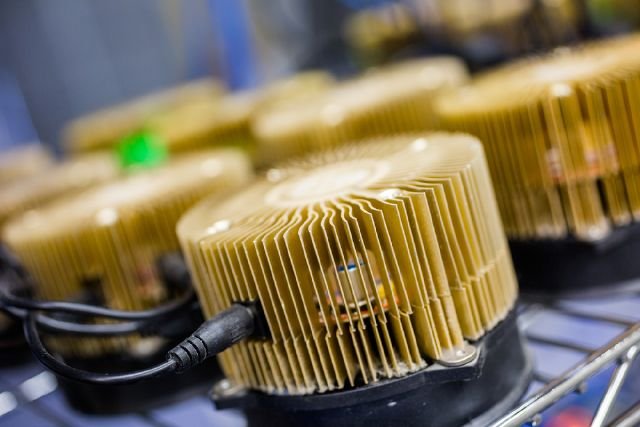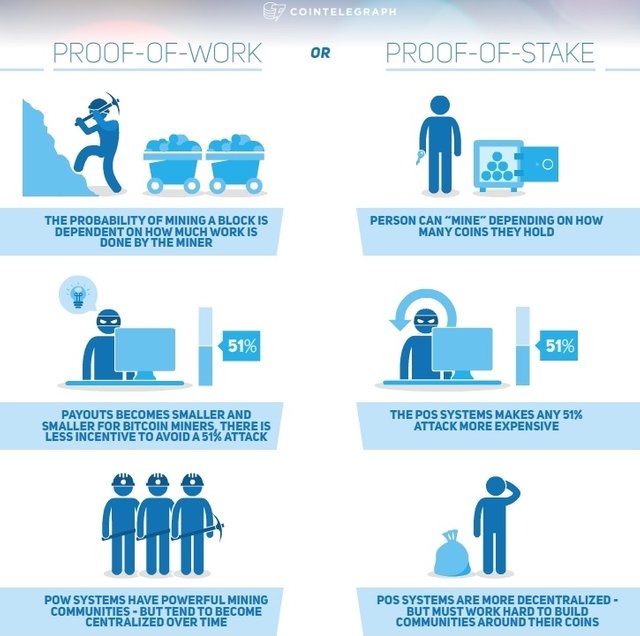Is Proof of Stake really the future for bitcoin and altcoins mining?

Proof of Stake (PoS) is a relatively new concept. For many it is still unclear how will mining work with this concept and what are the risks and advantages.
In fact, many known altcoins are already implementing this new alternative to Proof of Work (PoW) mining, such as NXT or Diamond.
Here, I will give a brief and simple explanation on what PoS is and what are its advantages and disadvantages over PoW.
Proof of Work
As many may already know, In PoW mining the chances of a miner finding a block depend solely on it's computing power (hashes per second), and on solo mining, luck may also be a factor to consider.
Most major cryptocurrencies use this approach (including Bitcoin and Ethereum), and over the past few years the difficulty has increased exponencially; so much in fact, that mining Bitcoin nowadays is only viable through the use of ASICs ( Application Specific Integrated Circuit).

Proof of Stake
In simple terms, the concept of PoS revolves around the amount of coins that miners possess on the network; the more coins a miner possess, the higher chances he has to find blocks on the blockchain. This amount of coins is the "Stake" a miner places on finding a block.
Although not yet fully mature, crypto experts believe PoS will eventually replace PoW mining.

PoS vs PoW: the ups and downs
Now, what are the pros and cons of PoS over PoW mining? Let's point out some possible scenarios.
Advantages.
- PoS does not require costly hardware to colaborate to the network; consensus can be reached based solely on the amount of coins each miner has.
- The "investment" needed for mining through PoS does not devaluate over time. The value of the miner worth is only affected by the changes on the coin value, and exchange rate between other currencies (Bitcoin, USD).
- PoS is clearly a lot cleaner for the environment than PoW, the former needing only to own coins on the network thus allowing a "virtual mining", whereas the latter requires hardware and electricity to function.
- PoS tends to be less descentralized by the nature of its algorithm.
Disadvantages.
- PoS can still be monopolized by means of organizations with large volumes of the network's available coins, thus the descentralization problem has yet to be addressed.
- Networks are not immune to attacks, this was made clear when Ethereum network was attacked and a hard fork had to be made, thus creating Ethereum Classic on the process. The fact is, in a PoS network, if an attack were to be made, miners might actually lose partially or totally their coins. This is not the case on PoW; even if miners lose the coins they have on the network, they won't lose their "initial investment", which is the hardware used for mining.
- Moving miners from PoW to PoS mining might prove a difficult task. What are they to do with their acquired harware once PoS comes in? The most obvious thing is selling it, but remember that hardware quickly devaluates over the years.

So is PoS better than PoW? Is PoS the future of crypto mining? Will PoS replace PoW?
Experts says so, we will have to wait and see until one of the most important cryptocurrencies implements PoS. Rumors has it that Ethereum is said to be implementing PoS before 2017. We will just have to wait and see for ourselves.
Thanks for reading, and feel free to leave any comment with your opinion on Proof of Stake.
Thanks for informing about crypto mining and other details.
I have a small mining rig, has been operating more than a year. But as the situation develop right now. I have been starting to increase my holdings in POS coins since late 2017. Knowing i can't keep enjoying this income from POW / mining operation. Nicehash hack, DASH ASiC , Monero ASiC has thought us why. As mentioned above, POS makes any attack attempts riskier and that makes the holders happier. :D